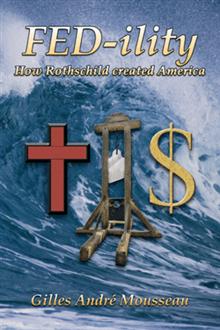To be sure, WWI ended just as oddly as it had started. When, in October 1918, the Americans and their allies breached the Siegfried Line, which, by the way, was in France, not Germany, the Germans stopped fighting. The Central Powers just rolled over and immediately signed the Armistice on November 11th, 1918. How very bizarre! Were the mighty Prussians wimps in disguise, or was HR’s FED forcing them to stop by withholding credit? Why didn’t the Allies pursue and push this invading army of monsters back into Germany? Millions were killed in abominable conditions in a war of attrition that devastated much of northern France, and the victorious Allies are content to say, “Okay, guys, it’s over. You can go home now.” Very odd behavior indeed!
In 1917, something must have gone wrong with the WWI plan. HR’s FED had no doubt planned for the Americans to enter the war and pierce the Western Front while the victorious Bolsheviks attacked from the East. The intent, of course, was to crush Imperial Germany. But it didn’t happen. Lenin decided to quit the war, instead. So, with no Eastern Front and after four years of apocalyptic trench warfare in France, HR’s FED obviously decided to let everybody take a breather and get at Imperial Germany some other day. If Lenin died in 1924 of gunshot wounds sustained in a 1918 assassination attempt, it was likely because he had failed, or maybe had even double-crossed HR’s FED.
That’s why HR’s FED had to immediately sit down at the drawing board and prepare for WWII. Since the Treaty of Versailles signed in 1919 was the worst possible peace treaty imaginable, we can be sure that lasting peace was not its main purpose. All the statesmen had to be from la-la land in order to give their approval to such terms. The thirty-three billion dollars of war reparations the allies imposed on Germany couldn’t possibly be repaid and everybody knew it. Furthermore, when the Allies split Germany in two by creating the Polish Corridor, they profoundly humiliated the whole German population. Such decisions on the part of the allies were more than enough to set the wheels in motion for WWII within Germany.
